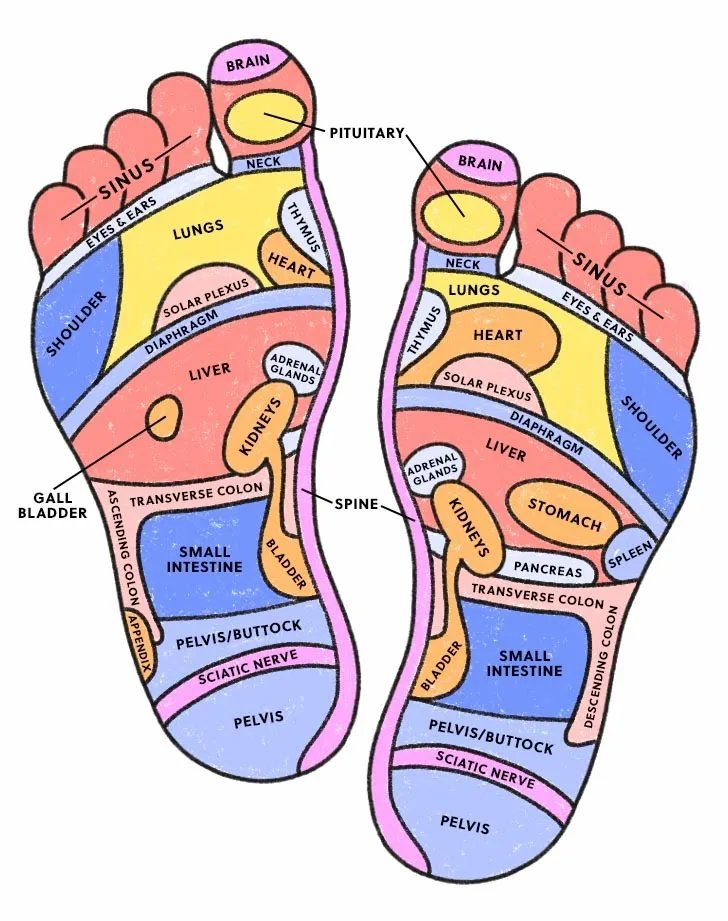How to be more emotionally intelligent (without trying so hard)
🧵 for @threadapalooza
🧵 for @threadapalooza
1. If you’re scared of feeling an emotion, you’re already in it.
2. Constantly trying to make sense of your emotions prevents you from hearing their wisdom.
3. Joy is the matriarch of a family of emotions. She won't come into your house if her children are not welcome.
4. If you can't welcome the emotion, welcome the resistance to it.
5. Ego is as much what you don’t think you are as what you think you are.
6. You can’t give or receive love fully if you’re constantly calculating what could go wrong.
7. You also cannot love fully unless you see that you are completely empowered.
It is near impossible to love what you think oppresses you.
It is near impossible to love what you think oppresses you.
8. We often abandon ourselves in an attempt to prevent other people from abandoning us.
9. When your thinking is binary, fear is running the show.
10. The next time you’re in freeze or depression, notice how much of it is repressed or held back anger.
11. Anger in its purity is beautiful.
Trying to change somebody, change their beliefs, be above them, dominate them, control them, scare them, push them away, or try to make them do anything – that is manipulation, not anger.
Trying to change somebody, change their beliefs, be above them, dominate them, control them, scare them, push them away, or try to make them do anything – that is manipulation, not anger.
12. The next time you’re feeling anxious, notice how much of it is repressed or held back excitement.
13. People don’t want you to be perfect.
What they want is to feel connected to you.
What they want is to feel connected to you.
14. People who are exhausted all day are often in the habit of beating themselves up or telling themselves how they should be.
15. Endless self-criticism is usually a sign that you want to be seen as valuable rather than to be of value.
16. There is no way of getting it perfect. There is no complete, no finish line, no done. There is simply “What’s the next experiment?” There is only play.
17. If you can’t say “no” easily, you can’t be trusted.
18.
- If it feels scary to say, it's important
- If it feels scary to say, NOT saying it will hurt your connection
- If it feels scary to say, NOT saying it prioritizes their imagined reaction over your truth
- If it feels scary to say, it's important
- If it feels scary to say, NOT saying it will hurt your connection
- If it feels scary to say, NOT saying it prioritizes their imagined reaction over your truth
19. You can’t be accepted for who you are if you’re not showing up as who you are.
20. We are often scared of the consequences of revealing who we actually are or what we actually think.
But whatever that “consequence” is also happens to be a direct path to the life where we are accepted and loved for who we are.
But whatever that “consequence” is also happens to be a direct path to the life where we are accepted and loved for who we are.
21. Willpower is needed if it’s a desire from the head.
Willpower is not needed if it’s a desire from the heart.
Willpower is not needed if it’s a desire from the heart.
22. If you feel oppressed, the most powerful oppressor is the thought that you can’t do anything about it.
23. If you struggle with paying attention:
What was the quality of attention you got as a kid?
What was the quality of attention you got as a kid?
24. If you're trying to manage other people's feelings, you're abandoning your own.
25. Many people believe that peace means never feeling agitated.
Deep peace is the ability to be with agitation without aversion.
Deep peace is the ability to be with agitation without aversion.
26. People cannot be split up into parts you accept and parts you reject. A person is a whole.
27. Unconditional love isn't people-pleasing or caretaking. It's the capacity to hold space for others' choices while honoring your own truth.
28. Judging others for showing off is often an indication that we’re struggling with our own desire to be seen.
29. Being known is the empty calorie surrogate to being seen.
30. The desire to be special can only exist when you don’t know who you are.
31. Overwhelm is a form of fear.
It is the moment where you think you have to get out of flow to manage reality.
It is the moment where you think you have to get out of flow to manage reality.
32. Perceiving yourself as “better than” other people is a sign of repressed emotions.
And you can’t repress emotions without repressing joy.
And you can’t repress emotions without repressing joy.
33. I have never met anyone who is both deeply joyful and also harbors a sense of superiority.
34. If you’re feeling stuck, it’s usually an indicator that there’s an emotion you’re trying to avoid feeling.
The most common are fear, anger, or shame.
The most common are fear, anger, or shame.
35. You cannot become more valuable.
36. Most people believe confidence comes from being really good at what they do or never messing up.
But unshakable confidence comes from knowing your worth isn't tied to your performance.
But unshakable confidence comes from knowing your worth isn't tied to your performance.
37. What did you call the fear you experienced around money before you knew what money was?
38. How is your relationship with money similar to your relationship with your mom or dad?
39. Judging others people's emotions is just a form of rejecting your own.
We can't handle in other people what we don't allow in ourselves
We can't handle in other people what we don't allow in ourselves
40. Some folks refuse to get angry because they had a parent who raged and was abusive.
But they'll get angry at themselves all day long.
But they'll get angry at themselves all day long.
41. Trying to find your purpose is a fool’s errand. It’s like trying to find your breath.
42. Your purpose is in you, and you were born with it. To think you have to find it cuts off the faith that purpose needs to grow.
43. If you're telling yourself you should change a habit, that's a great way to keep the habit.
We rebel against tyrants even if the voice in our own head is the tyrant.
We rebel against tyrants even if the voice in our own head is the tyrant.
44. You can't stop the voice in your head.
But you can react to it in different ways, and that will change its tune.
But you can react to it in different ways, and that will change its tune.
45. Being conflict-avoidant is another way of saying I can't be loved for who I am.
46. If you think you have to act a certain way in order to be loved, you’re not actually being loved
You’re being loved for someone you’re pretending to be, and that’s not being loved.
You’re being loved for someone you’re pretending to be, and that’s not being loved.
47. Caretaking is a watered-down version of love. You can tell because there is no buzz.
48. Emotional abuse doesn’t just mean yelling or physical violence.
It includes anytime you use your emotions to control another person.
It includes anytime you use your emotions to control another person.
49. Tension is essential to life — without the proper tension, a balloon deflates, the strings on a guitar lose their tune, and the muscles in your body can’t move.
The same is true for any relationship.
The same is true for any relationship.
50. Meditation is inefficient if it's your only tool for self-discovery.
It's like building a house with only a saw. It can be done, but it's going to take a shit ton of time.
It's like building a house with only a saw. It can be done, but it's going to take a shit ton of time.
• • •
Missing some Tweet in this thread? You can try to
force a refresh






